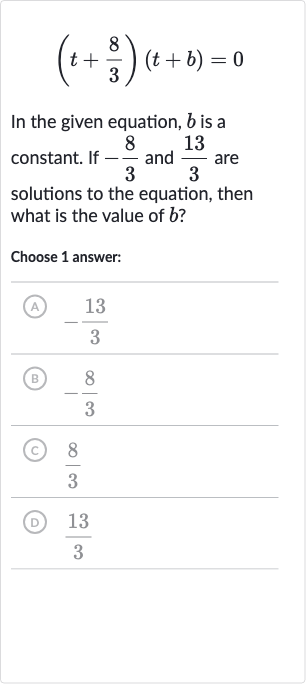Full solution
Q. In the given equation, is a constant. If and are solutions to the equation, then what is the value of ?Choose answer:(A) (B) (C) (D)
- Given Equation Analysis: We are given the equation and told that and are solutions to this equation. This means that when we substitute with either or , the equation should be satisfied.
- Substitute First Solution: First, let's substitute with the first solution into the equation and see if it satisfies the equation.Substitute :
- Simplify First Substitution: Simplify the expression:Since anything multiplied by is , this part of the equation is satisfied regardless of the value of .
- Substitute Second Solution: Now, let's substitute with the second solution into the equation.Substitute :
- Simplify Second Substitution: Simplify the expression:Since is and is not equal to , the only way for the product to be is if the second factor is .
- Solve for b: Set the second factor equal to zero and solve for b:
- Final Answer: We have found the value of that satisfies the equation when is . Since the problem asks for the value of , we have our answer.

